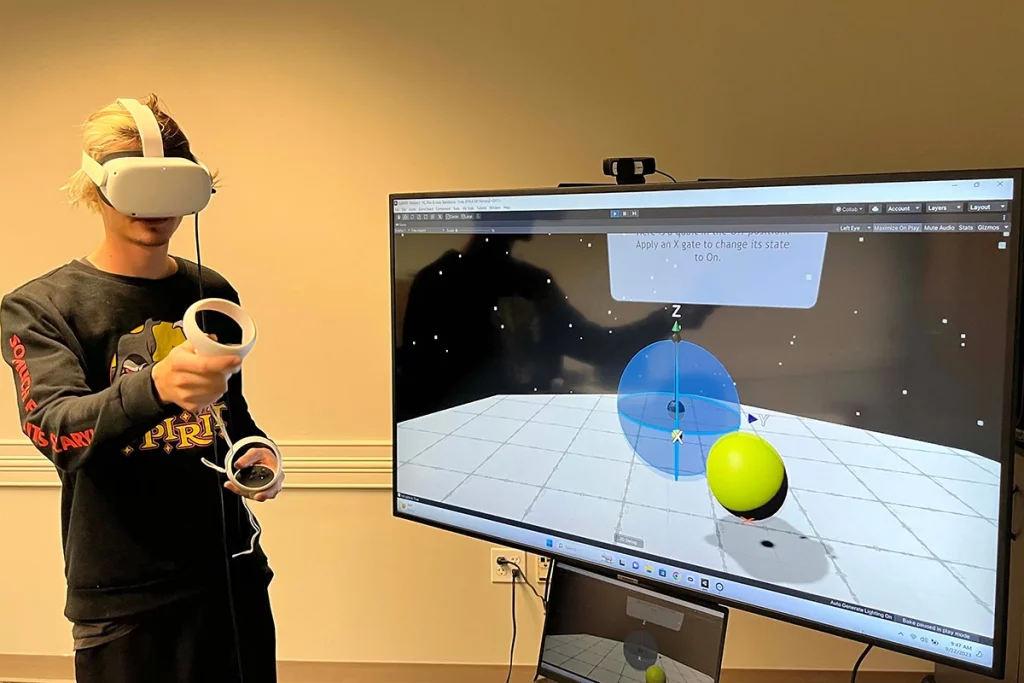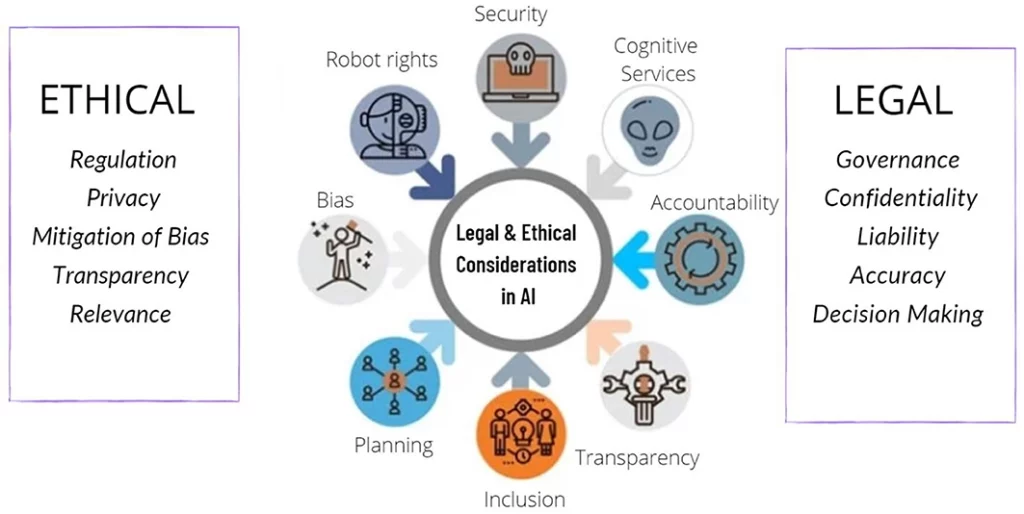What Is a Barrier to Entry Preventing Quantum Computing?
Quantum computing, a revolutionary paradigm in computational technology, has captivated the minds of scientists and researchers worldwide. This cutting-edge field promises to solve complex problems intractable for classical computers, unlocking unprecedented possibilities. However, despite its immense potential, quantum computing faces significant barriers that hinder its widespread adoption and practical implementation.
In this article, we delve into the intricate challenges that stand as formidable obstacles on the path to realizing the full potential of quantum computing. From the lack of funding and resources to the technical complexities and regulatory concerns, we unravel the multifaceted nature of these barriers, shedding light on the hurdles that must be overcome to unleash the transformative power of this revolutionary technology.
Table of Contents
What is a Barrier to Entry in Quantum Computing?

A barrier to entry in quantum computing refers to the various obstacles, challenges, and limitations that impede the development, implementation, and widespread adoption of this emerging technology. These barriers can be multifaceted, encompassing financial, technical, regulatory, and ethical aspects.
Overcoming these barriers is crucial for unlocking the full potential of quantum computing and enabling its seamless integration into various industries and domains. By understanding and addressing these challenges, researchers, policymakers, and industry leaders can pave the way for a future where quantum computing becomes a reality, revolutionizing fields as diverse as cryptography, material science, and pharmaceutical research.
The Potential of Quantum Computing

Quantum computing promises to accelerate computational capabilities exponentially, enabling us to tackle complex problems practically unsolvable by classical computers. This revolutionary technology leverages the principles of quantum mechanics, such as superposition and entanglement, to perform calculations in parallel, offering an unprecedented level of computational power.
The potential applications of quantum computing are vast and far-reaching, spanning domains like cryptography, optimization, simulation, and machine learning. From cracking previously unbreakable encryption codes to simulating complex molecular structures for drug discovery, quantum computing has the potential to revolutionize industries and drive scientific breakthroughs.
However, despite its immense potential, the path to realizing the full capabilities of quantum computing is riddled with formidable challenges that must be addressed.
Lack of Funding and Resources
More funding and resources are among the most significant barriers to advancing quantum computing. Developing and maintaining quantum computing systems requires substantial financial investment, cutting-edge infrastructure, and a highly skilled workforce.
- Financial constraints: Quantum computing research and development often require substantial capital investment, which can be a significant barrier, particularly for smaller organizations or academic institutions with limited budgets.
- Specialized infrastructure: Building and operating quantum computers necessitate specialized facilities with stringent environmental controls, such as ultra-low temperatures and isolated environments, which can be costly to establish and maintain.
- Talent shortage: There is a global shortage of quantum computing experts with the necessary quantum physics, computer science, and engineering expertise. Attracting and retaining top talent in this highly specialized field can be challenging, especially for organizations with limited resources.
Addressing the need for more funding and resources is crucial for accelerating the progress of quantum computing. Increased investment from governments and private entities and collaborative efforts between academia and industry can help bridge this gap and foster an environment conducive to innovation and breakthroughs in this field.
Technical Challenges in Quantum Computing

Quantum computing is a highly complex and rapidly evolving field that presents numerous technical challenges that must be overcome to achieve practical and scalable implementations. These challenges span various areas, including hardware development, error correction, and algorithm design.
- Hardware limitations: Building reliable and scalable quantum hardware is a significant challenge. Maintaining the delicate quantum states required for computation is extremely difficult due to environmental factors like temperature fluctuations, electromagnetic interference, and cosmic radiation, which can cause decoherence and errors in the system.
- Error correction and fault tolerance: Quantum systems are inherently prone to errors due to their sensitivity to environmental disturbances. Developing robust error correction and fault-tolerant mechanisms is crucial for ensuring the accuracy and reliability of quantum computations.
- Algorithm design: Designing efficient quantum algorithms that can leverage the unique capabilities of quantum computers is a complex task. Existing classical algorithms cannot be directly translated to quantum algorithms, and new approaches and paradigms need to be developed.
- Scaling challenges: As the number of qubits (quantum bits) in a quantum computer increases, the complexity of controlling and maintaining the system grows exponentially. Achieving large-scale, fault-tolerant quantum computing systems remains a significant challenge.
Overcoming these technical hurdles requires collaborative efforts from researchers, engineers, and scientists across various disciplines. Continuous advancements in areas such as quantum error correction, fault-tolerant architectures, and algorithm development are essential for realizing the full potential of quantum computing.
Quantum Computing and Cybersecurity

While quantum computing holds immense potential for revolutionizing various fields, it poses significant cybersecurity challenges and risks. The advent of powerful quantum computers could render many current encryption methods obsolete, potentially compromising the security of sensitive data and communications.
- Cryptographic vulnerabilities: Existing cryptographic systems, such as RSA and elliptic curve cryptography, rely on the computational difficulty of factoring in large numbers or solving some mathematical issues. However, with their ability to perform specific calculations exponentially faster than classical computers, quantum computers could use these encryption methods in a reasonable timeframe.
- Quantum-safe cryptography: To mitigate the risks of quantum computing, developing quantum-resistant or quantum-safe cryptographic algorithms is crucial. These algorithms aim to withstand attacks from classical and quantum computers, ensuring the long-term security of sensitive data and communications.
- Quantum key distribution (QKD): QKD is a quantum-based method for securely distributing cryptographic keys, leveraging the principles of quantum mechanics to detect any potential eavesdropping or tampering attempts. However, large-scale QKD implementation presents significant technical and logistical challenges.
Addressing the cybersecurity implications of quantum computing requires a proactive approach. Collaboration between quantum computing researchers, cryptographers, and security experts is essential to develop robust quantum-safe cryptographic solutions and mitigate the potential risks posed by this powerful technology.
Regulatory and Ethical Concerns

As with any transformative technology, the development and implementation of quantum computing raise various regulatory and ethical concerns that must be addressed. These concerns span data privacy, intellectual property rights, and the potential misuse of quantum computing capabilities.
- Data privacy and security: The immense computational power of quantum computers could compromise existing data encryption methods, raising significant concerns about data privacy and security. Regulatory frameworks and guidelines are needed to ensure the responsible use of quantum computing and protect sensitive information.
- Intellectual property rights: Quantum computing research and development often involve significant investments and intellectual property (IP). Establishing clear IP rights and protecting proprietary information from potential theft or misuse is crucial for fostering innovation and maintaining a competitive edge in this field.
- Ethical implications: The potential applications of quantum computing, such as breaking encryption codes or simulating complex systems, raise moral questions about the responsible use of this technology. Discussions and guidelines are needed to ensure that quantum computing is utilized for the betterment of society while mitigating potential misuse or unintended consequences.
Addressing these regulatory and ethical concerns requires a collaborative effort from policymakers, industry leaders, researchers, and stakeholders. Establishing clear guidelines, fostering open dialogue, and promoting responsible innovation are essential to ensure the ethical development and deployment of quantum computing technologies.
Overcoming the Barriers to Quantum Computing
Overcoming the barriers to quantum computing requires a multifaceted approach involving collaborative efforts from various stakeholders, including researchers, policymakers, industry leaders, and funding organizations. Here are some strategies that can help address these challenges:
- Increased investment and funding: Governments, private entities, and collaborative efforts between academia and industry should prioritize investing in quantum computing research and development. Adequate funding is essential for attracting top talent, building specialized infrastructure, and accelerating technological advancements.
- Interdisciplinary collaboration: Quantum computing lies at the intersection of various disciplines, including physics, computer science, engineering, and mathematics. Fostering interdisciplinary collaboration and knowledge sharing among experts from different fields can drive innovation and address complex challenges more effectively.
- Workforce development: Investing in educational programs, training initiatives, and internships focused on quantum computing can help build a skilled workforce capable of driving the field forward. Academic and industry collaboration can facilitate knowledge transfer and hands-on experience for aspiring quantum computing professionals.
- Public-private partnerships: Establishing strategic partnerships between government agencies, academic institutions, and private companies can leverage collective resources, expertise, and funding to tackle the barriers to quantum computing more effectively.
- Regulatory frameworks and ethical guidelines: Developing clear regulatory frameworks and ethical guidelines for quantum computing can help address concerns related to data privacy, intellectual property rights, and responsible use of this technology. Engaging stakeholders from various sectors in these discussions is crucial.
By implementing these strategies and fostering a collaborative ecosystem, the barriers hindering quantum computing can be gradually overcome, paving the way for this revolutionary technology’s widespread adoption and practical implementation.
The Future of Quantum Computing

Despite the challenges and barriers currently faced, the future of quantum computing holds immense promise and potential. As researchers and scientists continue to push the boundaries of this field, we can expect to witness groundbreaking advancements and transformative applications that will reshape various industries and domains.
- Quantum supremacy and practical applications: As quantum computing systems become more powerful and scalable, they will likely achieve quantum supremacy – the ability to solve problems intractable for classical computers. This milestone will unlock practical applications in drug discovery, material science, finance, and logistics optimization.
- Quantum Internet and communication: The development of a quantum internet, which leverages the principles of quantum mechanics for secure communication and data transfer, could revolutionize how we transmit and process information, ensuring unprecedented levels of security and privacy.
- Quantum computing in the cloud: As quantum computing technologies mature, we may see the emergence of quantum computing as a service (QCaaS), where users can access and leverage quantum computing resources remotely through cloud-based platforms, similar to current cloud computing services.
- Convergence with other emerging technologies: The convergence of quantum computing with other emerging technologies, such as artificial intelligence (AI), machine learning, and the Internet of Things (IoT), could lead to unprecedented breakthroughs and innovative applications across various sectors.
Related Post: Why Might Businesses Be Interested in Using Quantum Computers
Frequently Asked Questions (FAQs)
What is quantum computing?
Quantum computing is a revolutionary computing paradigm that leverages the principles of quantum mechanics, such as superposition and entanglement, to perform calculations exponentially faster than classical computers for certain types of problems.
Why is quantum computing important?
Quantum computing can potentially solve issues practically unsolvable by classical computers, enabling breakthroughs in cryptography, optimization, simulation, and machine learning.
What are the main barriers to quantum computing?
The main obstacles to quantum computing include lack of funding and resources, technical challenges (hardware limitations, error correction, algorithm design, and scaling), cybersecurity concerns, and regulatory and ethical considerations.
How can the barriers to quantum computing be overcome?
Overcoming the obstacles to quantum computing requires a multifaceted approach involving increased investment and funding, interdisciplinary collaboration, workforce development, public-private partnerships, and establishing regulatory frameworks and ethical guidelines.
What is the future of quantum computing?
The future of quantum computing holds immense promise, with potential applications in drug discovery, material science, finance, and logistics optimization. Developing a quantum internet, quantum computing in the cloud, and convergence with other emerging technologies like AI and IoT could lead to unprecedented breakthroughs and innovative applications.
Conclusion
Quantum computing, with its immense potential to revolutionize various industries and drive scientific breakthroughs, is undoubtedly a technology worth pursuing. However, the path to realizing its full capabilities is riddled with formidable barriers that must be addressed through concerted efforts from researchers, policymakers, industry leaders, and funding organizations.







